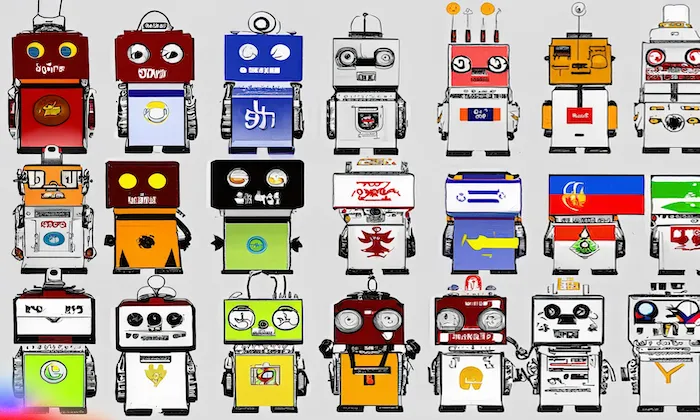What role do different car models and cabin configurations play in dataset diversity?
Dataset Diversity
Car Models
Cabin Configurations
In the fast-evolving world of automotive AI, the diversity of datasets is a cornerstone for developing effective in-car speech recognition systems. This diversity is closely tied to the variations in car models and cabin configurations, each influencing the acoustic environment and user interactions. Understanding these nuances is vital for AI engineers, researchers and product managers aiming to build robust and user-friendly voice systems.
Why Dataset Diversity Matters in Automotive AI
Vehicle interiors present unique acoustic challenges, markedly different from home or studio environments. Factors like engine noise, road conditions, and microphone placement significantly impact voice command quality. A diverse dataset ensures AI models can adapt to these variations, leading to better performance in real-world scenarios. Here's how diversity benefits AI systems:
- Enhanced Robustness: Models trained on varied datasets handle unexpected noise and speech patterns more effectively.
- Increased Accuracy: Exposure to different acoustic profiles sharpens speech recognition and command understanding.
- Broader Applicability: Diverse datasets enable systems to generalize across user demographics and vehicle types, enhancing the overall user experience.
Quantifying Dataset Diversity
Incorporating diverse datasets has tangible benefits. For instance, models trained with data from 10 unique car makes have shown an improvement in command recognition accuracy by up to 15%. Such quantitative insights underscore the importance of dataset diversity in refining AI capabilities.
How Car Models Influence Dataset Characteristics
Different car models introduce distinct acoustic environments:
- Cabin Size and Shape: The spatial dynamics of larger vehicles like SUVs differ from compact cars, affecting sound travel and speech capture.
- Material and Insulation: Sound-dampening interiors versus minimalist designs alter sound absorption and reflection, influencing dataset quality.
- Microphone Placement: Varying placements—dashboard-mounted, near headrests, or integrated systems—introduce unique echo patterns and noise interference, crucial considerations for dataset creation.
Cabin Configurations and Acoustic Variability
Cabin configurations further impact dataset diversity:
- Occupant Positioning: Speech characteristics vary between drivers and passengers, with their positions yielding diverse audio samples. Conversations between front and backseat occupants can vary based on proximity to microphones.
- Environmental Conditions: Open or closed windows, air conditioning, and background music contribute to the acoustic landscape. Capturing voice data under these conditions ensures AI models recognize commands in noisy environments.
Ethical Considerations in Dataset Creation
Inclusivity in dataset creation is paramount. Ensuring representation of varied dialects, languages, and demographics enhances model fairness and accuracy. FutureBeeAI prioritizes ethical AI by curating datasets that reflect diverse user voices and interactions, supporting responsible AI development.
Real-World Applications and Use Cases
Understanding the impact of vehicle design on datasets is not merely academic; it has practical implications:
- Voice-Enabled Infotainment Systems: A luxury EV brand leverages in-car speech datasets from multiple models to develop a multilingual voice assistant that performs seamlessly across different acoustic environments.
- Autonomous Taxi Services: Emotion recognition models, trained with data captured in high-traffic conditions, enhance passenger interactions and safety features by accounting for urban noise.
- Custom Dataset Solutions: A Tier-1 OEM requests tailored datasets for specific vehicle models, optimizing command recognition for navigation, climate control, and infotainment based on unique acoustic profiles.
Best Practices for Data Collection
To maximize the impact of car models and cabin configurations on dataset diversity:
- Diverse Data Collection: Record across a wide range of vehicles, cabin configurations, and environmental conditions, facilitated by platforms like Yugo.
- Comprehensive Metadata Utilization: Include detailed metadata on recording conditions such as microphone placement, ambient noise levels, and speaker demographics for effective model analysis and training.
- Real-World Scenarios: Capture speech data in authentic driving conditions to ensure datasets mirror everyday user challenges.
The Dynamic Relationship Between Vehicle Design and Dataset Diversity
The relationship between car models, cabin configurations, and dataset diversity is pivotal in developing effective in-car speech systems. By understanding these dynamics, AI teams can create more robust, accurate, and user-friendly models. As the automotive landscape evolves, investing in diverse and well-annotated datasets will pave the way for smarter, more adaptable AI applications.
For automotive projects requiring comprehensive in-car speech datasets, FutureBeeAI offers tailored solutions to enhance your AI models' performance. Explore how our expertise in dataset collection and annotation can support your AI initiatives, delivering high-quality data that meets your specific needs.
What Else Do People Ask?
Related AI Articles
Browse Matching Datasets
Acquiring high-quality AI datasets has never been easier!!!
Get in touch with our AI data expert now!








